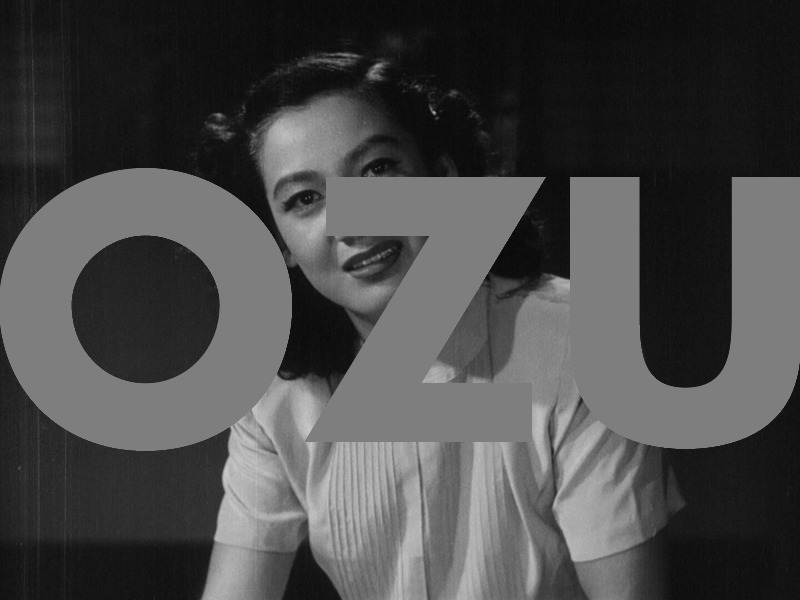Hey, that’s those two from all the other Ozu movies!
I recently learned that one of the reasons for the distinctive look of Ozu’s movies is the camera rig above — with it, he films the actors actually sitting on the floor (as is natural) without any trickery, as building up the set or something. He’s even slightly filming upwards on most actors?
See? Slightly upwards.
But what did the OSHA representative for the cameramen say? Had to lead to a lot of crinked necks.
This 2K release is a lot less restored than Criterion releases usually are — it’s generally nice-looking, with most of the scratches and stuff removed, but there’s still a lot of streaking, fluctuating light, and judder on scene changes that’s usually fixed…
Oh, him too. The whole troupe is here.
After the 2012 Sight & Sound Directors’ poll (which was topped by Ozu’s Tokyo Story), I read a bunch of articles saying “yes, Tokyo Story is good, but Ozu has made many equally good movies”. And, yes, Ozu has made a whole bunch of excellent movies, and it’s hard to rank them against each other.
So perhaps that’s why this has made it onto the list… and why Tokyo Story has slipped from first place to fourth place, as people have been diversifying their Ozu votes?
But I don’t know about this one. It’s a bit annoying — it’s got a musical score that comes and goes, but when it’s around, tells us how to feel in any scene. And the characters seem rather cartoonish.
A rare toenail cutting scene.
I dunno. It may just be because Ozu reused many bits from this movie in later films that it seems a bit obvious? I mean, it’s a really nice movie, but I constantly feel that I know what’s going to happen… and that’s because I do, since I’ve seen the later Late Autumn and Equinox Flower films, which reprise many scenes (with some changes, like the daughter playing the mother etc).
So I may just be a victim of watching these movies out of order, and if this was my first Ozu movie, I might have been awed.
Instead I’m charmed, but not much more.
Very zen.
… hey!!!
The ending is marvellous — there’s not a dry eye in the house. The final ten minutes are almost enough to make me forget any reservations I have about the movie… almost! I’m hard as nails (acrylic) so I’m not going to let a super-sentimental ending sway me from my original impression: Which is that this wouldn’t really be in my Ozu top five.
But I totally get somebody saying that they love this movie.
晩春. Yasujirô Ozu. 1949. ⚃
This blog post is part of the Officially The Best 2022 series.

